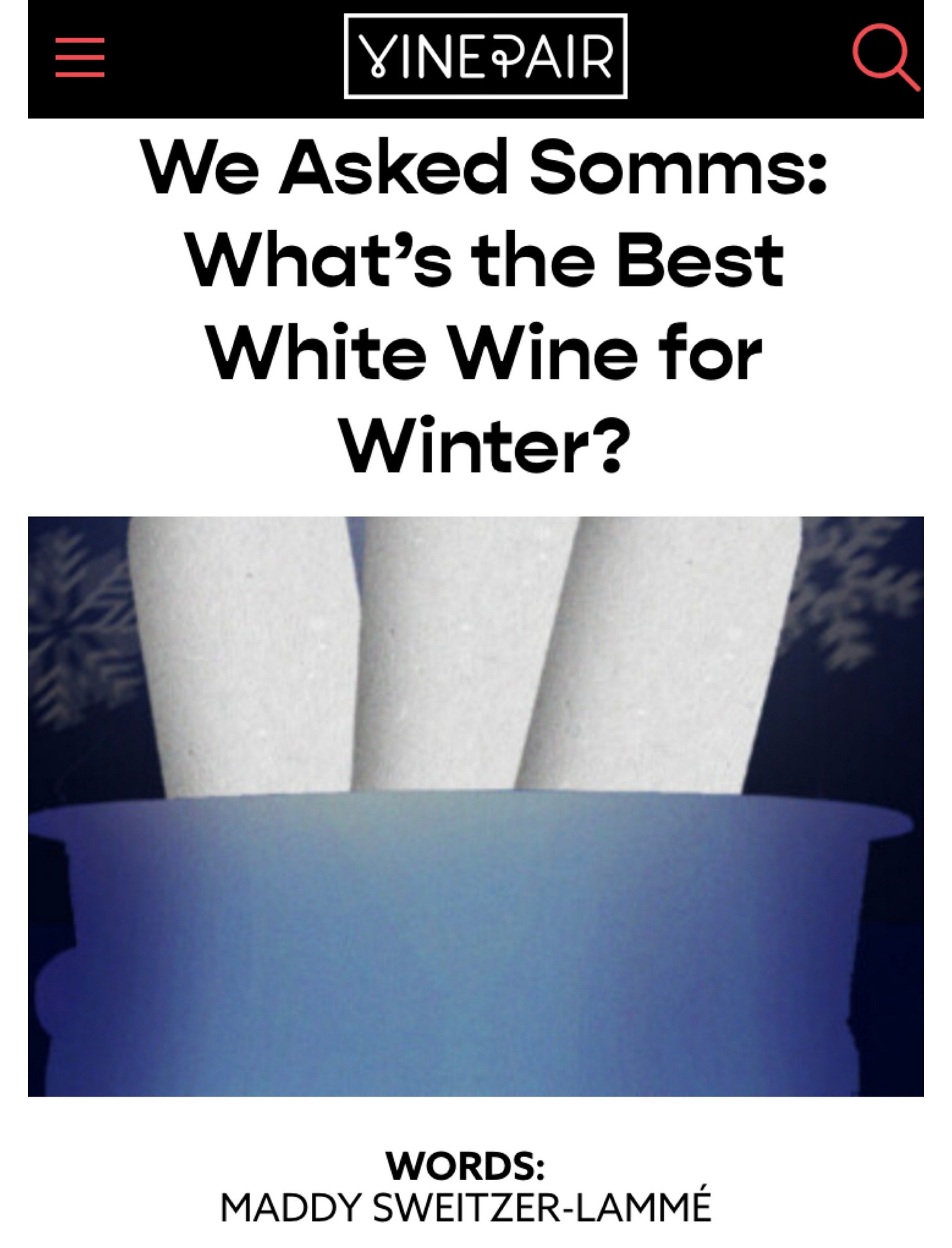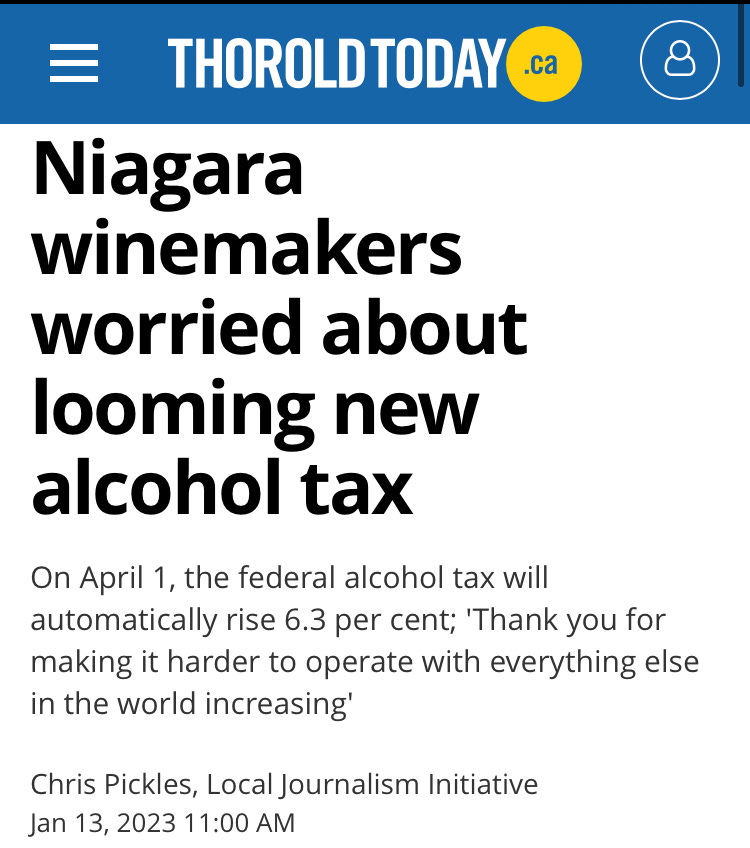Winter Whites
Winter Whites. Just in time for the polar vortex, VinePair asked 13 sommeliers for their favourite white wines for winter. White wines that typically pair well with colder temps and the fireplace channel tend to be richer, warmer, and weightier styles such as White Burgundy (aka French Chardonnay like the Viré-Clessé Quintaine made by Guillemot-Michel, imported by CGU), Viognier (I’m a fan of Rosewood’s Patience), Chenin Blanc (such as those made by Domaine aux Moines which I learned about from this impassioned post, imported by That's Life), and a skin contact Ribolla Gialla (a grape grown along the border of Friuli and Slovenia in northeastern Italy), to name a few of the recommended winter whites.
Piquing Curiosity with Orange Wine. In Bon Appétit's How Orange Wine’s Popularity Is Educating a New Generation of Wine Drinkers, Emily Saladino writes about how the rise of orange wine has piqued curiosity and conversation. Skin-contact or “orange” wine is a white wine that’s made like a red wine in that the wine is fermented with its skins, adding texture, flavour, and colour. Saladino explains that while the category is not only growing — analysts predict the orange wine market will grow to $67 million in 2032 — it is also creating a “new type of casual wine drinker: one who is actually eager to learn a lot more about wine.” Orange wines can be quite diverse — they can be savoury, fuzzy peachy, salty, refreshing, weird, acidic, marmalade-y, and more — depending on how they are made and what grapes are used, making them fun to learn about.
Alcohol-Free Tasting Event. For those doing Dry January, Toronto’s Loop Line is collaborating with ClearSips, a new agency in Ontario specializing in distributing non-alcoholic drinks, for a tasting event taking place on January 21, 2023. The event will feature non-alcohol drinks from producers such as Oddbird who makes wine with zero alcohol, using a natural winemaking process with minimal processing.
Speaking Out Against Rising Wine Taxes. Canada’s federal alcohol excise tax is set to increase by 6.3% on April 1, a result of the government’s decision to automatically increase excise taxes (which are applied to products like tobacco, alcohol and certain fuels) with inflation, as outlined in its 2017 Budget.
The Canadian Chamber of Commerce has called on the government to repeal the automatic escalator tax, as has Ontario Craft Wineries, the industry association representing VQA wineries, whose president was quoted in the article Niagara winemakers worried about looming new alcohol tax:
This is not a good time to increase alcohol taxes on domestic wine producers. The automatic escalator should either be frozen or repealed all together. Ontario already has some of the highest alcohol taxes in the world and the escalator, by its nature, is unresponsive to ongoing economic conditions. And new taxes simply mean less capital for wineries to invest in their operations, employees and products.
William Roman, general manager of Ontario’s Rosewood Estates Winery, explained the federal tax is on top of provincial taxes, including a 6% sales tax levied on wine sold at the winery, plus an additional 10% for selling to restaurants. And if the wine is not VQA, a designation that means a wine meets specific standards, there’s an additional 30% tax. Most of Rosewood’s wines are VQA approved and exempt from the additional tax, but the 2017 vintage of Gewcci, a wild fermented Gewürztraminer bottled without fining or filtration, is not VQA as it failed the VQA taste test, with Roman explaining that the wine was designed to be different to similar styles in Ontario. According to the article, Roman “believes the VQA is too strict in the awarding of the appellation, stifling creativity in winemaking.”






